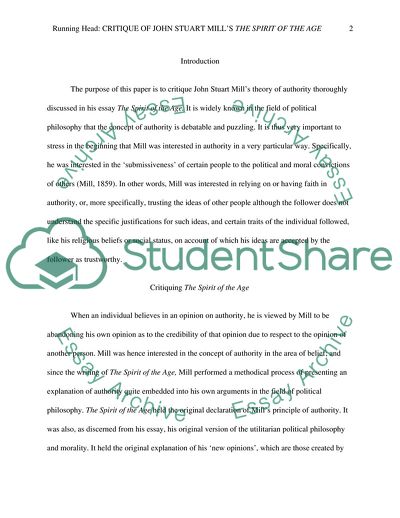Cite this document
(The Spirit of the Age by Mill Book Report/Review Example | Topics and Well Written Essays - 1250 words, n.d.)
The Spirit of the Age by Mill Book Report/Review Example | Topics and Well Written Essays - 1250 words. https://studentshare.org/philosophy/1845533-philosophy-final-paper
The Spirit of the Age by Mill Book Report/Review Example | Topics and Well Written Essays - 1250 words. https://studentshare.org/philosophy/1845533-philosophy-final-paper
(The Spirit of the Age by Mill Book Report/Review Example | Topics and Well Written Essays - 1250 Words)
The Spirit of the Age by Mill Book Report/Review Example | Topics and Well Written Essays - 1250 Words. https://studentshare.org/philosophy/1845533-philosophy-final-paper.
The Spirit of the Age by Mill Book Report/Review Example | Topics and Well Written Essays - 1250 Words. https://studentshare.org/philosophy/1845533-philosophy-final-paper.
“The Spirit of the Age by Mill Book Report/Review Example | Topics and Well Written Essays - 1250 Words”. https://studentshare.org/philosophy/1845533-philosophy-final-paper.


